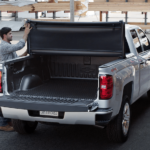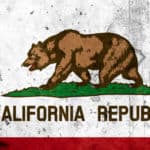It’s likely that car dealerships in Orange County were probably among the first to notice a notable shift in west coast car buying habits. As the birthplace of most environmentally fueled agendas and proposed legislation, ownership of any vehicle within the state comes with a hefty dose of biased influence. With that in mind, it’s really no surprise that 2017 auto sales reflected a 2% drop over 2016. Not because the bias is faulty, but because the population tends to make more prudent ecological choices be it by choice, or as a result of regulations placed upon them. Thus, it’s easy to assume a correlation between decreased sales and progressive policy.
As one of twelve ZEV (Zero Emission Vehicles) states committed to reducing carbon emissions, the choice for car-buyers comes down to either (i) opting to use public transportation / carpooling (to either minimize use, or eliminate the need to own) or (ii) choosing to purchase more responsibly-branded vehicles, be they hybrid or EV.
But with recent rollbacks of mileage standards, and Obama-era policy, it becomes all too easy to spot a gap that falls somewhere between lesser performing vehicles and the hybrid/EV variety that can still fall outside the average car-buyer’s price-point. That vacuum might best be described as the consumer’s desire for ‘something else’.
According to the California New Car Dealers Association’s annual review, in-state car sales were down 10% dipping below the million unit mark. However, the light truck segment (which includes sport-utility vehicles) experienced a 7% jump, bringing it up over 1.05 million. At the end of the day, total sales might have dropped, but a more notable headline is the redistribution of the pie in favor of “light trucks”, which now garner about 51% of total market share (vs. its 47% back in 2016). Take it a step further, and such vehicles have enjoyed an 85% increase since 2012, while car sales had increased a relatively meager 4%.
Let the pundits ponder, but from an everyman point of view it’s hard not to wonder if, even in California, environmental policy reform had become top-heavy in terms of public opinion for a segment of the population. Could even a partial removal of the stigma, inspire lovers of trucks and SUVs to pursue their preference without the burden of pressure?
At the end of the day, the majority of vehicles (regardless of segment or automaker) are making strides to offer greater fuel efficiency and improved emissions. That’s not a choice, it’s a restriction placed upon the automakers, and a very smart one. That said, as a citizen of a ZEV state, and someone far more likely to buy a muscle car, truck or SUV than an undersized EV it’s refreshing to see such a surprising statistic.
What are your thoughts on the popularity of such vehicles in CA (or any ZEV state, for that matter)? Would you prefer that we continue to see a more balanced selection of vehicle styles, or do you feel that enforced policy should be prioritized over a buyer’s personal preferences? We want to know!



